#Suppliers
Car, Tell: Quintet of Safety Suppliers Fined for Price Fixing
It appears the fictional JR Ewing isn’t the only one having to deal with cartels. Antitrust regulators in the EU have fined five safety equipment suppliers a combined 34 million euros ($40 million) for taking part in a scheme to fix prices for seat belts and airbags sold to Japanese automakers.
The cartels were allegedly supplying the safety equipment to Toyota, Suzuki, and Honda at inflated prices between calendar years 2004 and 2010.
Ghosn: Suppliers Essential to Nissan's Future Success
Carlos Ghosn, CEO of the Nissan-Renault-Mitsubishi Alliance, says automakers are going to have to get comfortable with suppliers doing more of the work as the industry evolves. With in-car technologies progressing more rapidly than ever before, the alliance head says engineers will have to lean on parts providers to take the burden off its own engineers.
Ghosn even said he had recently spoken to supplier who accused him of not listening. “They said we are duplicating [their] work,” the CEO recalled.
“They said, ‘We are developing the same things, and at the end of the day, you’re going to order parts from me, and you’re going to pay twice — for your own development and for mine. So why don’t we start from the beginning to work together?’ That’s an important point,” he said. “We are now probably one of the largest buyers in the world.”
The automotive collective intends to sell more than 14 million vehicles annually by the end of 2022, which represents an increase of about 3.5 million units from the expected volume for 2017. The strategy includes more shared platforms and powertrains between brands, a dozen EV models, and a fleet of autonomous taxis.
Dealerships to Receive $335 Million In Payments Over Supplier Price-fixing Scheme
Roughly 8,000 U.S. dealers will share in a $335 million payday resulting from a colossal 2010 antitrust investigation. The issue? Suppliers were involved in a widespread price-fixing scheme that lasted decades, and nobody noticed until the FBI raided the offices of Yazaki North America Inc., Denso International America Inc. and Tokai Rika Group North America.
In the end, 65 individuals and 47 companies were charged by the Justice Department — resulting in over $2.9 billion in fines and jail time for a swath of fresh white-collar criminals.
However, none of that money made it to manufacturers, dealers, parts retailers, or consumers. Those players had to resort to filing civil suits in federal court against the companies. In 2012, the multitude of claims were consolidated and transferred to Judge Marianne Battani and the U.S. District Court in Detroit. Over $1 billion has been set aside for affected parties, with around $335 million of the sum going to dealerships.
Tesla's Feverish Production Drive Sometimes Means Partial Assembly at Stores: Report
Never has the air of breathless futurism surrounding Tesla taken such a hit. Following a revealing earning report and numerous reports of continuing production bottlenecks, this week wasn’t a good one for either Tesla shareholders or Model 3 reservation holders.
The electric automaker pushed back its 5,000-vehicle-per-week goal to the end of the first-quarter of 2018, rather than the end of this year. Its 10,000-vehicles-per-week goal remains a question mark. Tesla also announced a decrease in Model S and X production to bolster resources for Model 3 builds. In reporting a quarterly loss of $619 million, Tesla made it clear it’s burning through piles of cash in an attempt to smooth out production line hurdles.
Now, a new report sheds light on the frenetic activity occurring inside its Fremont, California factory. One of the claims certainly won’t soothe those worried about a long-standing Tesla concern: build quality.
Automakers Take Stock After Major Metal Supplier Admits Selling Shoddy Aluminum
It’s often hard to remove an ingredient after the cake’s emerged from the oven. Because of this, news of Kobe Steel’s falsified inspection reports no doubt came with a fair bit of nervous collar tugging for executives at several automakers.
The Japanese company, which has subsidiaries in numerous countries, is a go-to supplier for the automotive and aircraft industries, providing steel, copper and aluminum components to companies as diverse as Ford and Boeing. Last week, Kobe admitted to selling substandard (or suspected substandard) materials to 500 companies, among them Ford, Volvo, Toyota, Honda, Nissan, Mitsubishi, and possibly Mazda.
Oh, and Mercedes-Benz, Tesla, General Motors, Hyundai, and Renault.
Maybe you’ve heard of them.
Ripples From Chevrolet Equinox Strike Force Slowdowns, Layoffs
The Chevrolet Equinox assembly line at General Motors’ CAMI plant in Ingersoll, Ontario, remains shuttered, and the impact from the dried-up flow of crossovers now extends across the border.
Unionized workers at the plant walked off the job Sunday night after their Unifor Local 88 bargaining team failed to reach a contract agreement with GM. Though the week began with marching and signs in Ingersoll, it ended with layoffs at an Ontario transmission plant and the promise of more in Michigan and Tennessee.
With Mercedes-Benz Going Electrified, How Does the Company Avoid Tanking?
Everyone’s doing it. It’s as popular as the fidget spinner and Pokémon Go crazes all those years months ago. In a rush to signal their environmental bonafides and display their dedication to the Next Big Thing, luxury automakers are tripping over themselves in an effort to promise an all-electrified model lineup as soon as technology and finances allow.
This time, it’s Mercedes-Benz. The world’s oldest car brand doesn’t want its rivals cashing in once governments around the globe start turning off the fossil fuel taps. So, earlier this week, Daimler CEO Dieter Zetsche stepped up and made a promise we’ve heard ad nauseum as of late: every model in the brand’s lineup will soon sport some form of electric propulsion, be it a hybrid setup or full-on battery electric powertrain.
For Mercedes-Benz, this means 50 hybrid or EV models, including at its irrelevant-to-Americans Smart brand. The move isn’t without a steep cost, however — Daimler is bracing for a slashing of vehicle profit margins. In some cases, the green collected from green cars could be half that of a gasoline Benz. What to do?
This North Korea Thing Has Major Implications for Hyundai
Hyundai Motor Co. is squabbling with its Chinese partner, BAIC Motor, over efforts to reduce supplier costs. The automaker has already faced a myriad of problems with its Korean workforce and witnessed reduced volume in both China and North America this year.
However, its newest problem in the Far East isn’t simply a matter of tweaking its lineup. The issue also has political undertones as the North Korean missile crisis has pitted Beijing and Seoul at odds with each other.
Ford GT Works Gummed Up as Company Issues Delay Notices to Customers
Handcrafted automobiles are a rarity these days but, if you add enough digits to the vehicle’s price tag, companies can still find a handful of buyers willing to fund the expensive production method. One model included on that short list is the Ford GT, the iconic American mid-engine two-seater assembled in Canada. With the help of Multimatic, Ford can usually slap one together every 24 hours under ideal circumstances.
Unfortunately, deliveries of the GT are starting to fall behind. It’s a little embarrassing, especially when you consider Ford only wants to build 250 a year, but it’s also entirely understandable, as a large portion of the assembly process seems to involve pushing the chassis around on a dolly through a mostly empty factory. You can’t rush perfection, and handcrafted perfection takes even longer.
At least, that’s what the automaker cites as the reason for the delivery delay.
Pending Battery Armageddon Ready to Doom Future EV Production
Practically every major manufacturer is touting electric cars as the future of automobiles. There’s good reason to believe them.
With few exceptions, automakers are aggressively pushing toward battery driven vehicles to meet ever more stringent regulatory demands. Several brands plan on fleet-wide electrification within a few years and a handful already snub internal combustion engines entirely. But there may be a massive problem on the horizon ready to handicap the greener future many of us were prepared to embrace.
Volkswagen, a company that has been promoting its own electric revolution in the wake of its diesel emission fiasco, is anticipating a serious lithium-ion battery shortage by 2025. Based on targets of achieving 25 percent of Volkswagen’s total volume from electric vehicles in 10 years, Ulrich Eichhorn, VW’s head of research and development, dramatically increased projections made 13 months ago.
Previous estimates from the company had the number set at 150 gigawatt-hours of electricity.
“We will need more than 200 gigawatt-hours,” Eichhorn stated on June 30th during a presentation at Volkswagen’s proving grounds north of Wolfsburg.
Honda Charges Up Its Electric Game With Joint Motor Company
Following early technological success in the electric car field, Honda entered the 21st century with a newfound aim to place hybrid vehicles in the driveways of global carbuyers. While rival Toyota’s hybrids have garnered the most headlines and sales, no one can criticize Honda (CR-Z notwithstanding) for the continued refinement of its electrified powertrains. Just look at the most recent Accord Hybrid or Acura’s growing list of performance-oriented multi-motor products.
Still, as fully electric vehicles began emerging on the scene, Honda found itself lagging behind. The Clarity EV, an electric version of its second-generation fuel cell vehicle, arrives this summer with a paltry 80-mile range. However, we’re promised much more in the year ahead.
As it moves forward with its EV plans, Honda also wants to have a stake in the supply of EV components to automakers — namely, electric motors. As of today, Honda and partner Hitachi have a name for their joint venture: Hitachi Automotive Motor Systems Limited.
Irrelevant 'Most-American Car' Ranking Changes Criteria, If Only to Flesh Out Results
While there are some who still proudly use the old slogan “ Buy American,” the concept is only loosely applicable to automobiles. While you can certainly support American brands, every automobile on the road is an amalgamation of parts from all over the world — and has been for quite some time.
This year, the automotive research website Cars.com, which began ranking the country’s “most-American” vehicles in 2006, was forced to change its criteria after only three models qualified under the old system of measurement.
For 2017, Cars.com has added country of engine origin, country of transmission origin, and U.S. factory employment relative to a company’s sales to its previous criteria of American parts content and final assembly location. It was also forced to lower the overall percentage of domestic parts a car needs to qualify by a full fifteen percent — from 75 to 60 percent.
Future-proofing: Cummins Wants to Sell You More Than Just Diesels
It’s hard to hear the name Cummins and not immediately think of a Ram pickup struggling valiantly to pull a gnarled tree stump out of the unyielding earth. Certainly, the company’s diesel inline-six and V8 engines are to the truck world what Nike is to professional sports.
While Cummins’ fossil fuel-powered engines and power systems show no signs of becoming passé, a company ignores the future at its own peril. The green revolution is afoot, we’re told, and internal combustion power will one day occupy the niche currently inhabited by electric propulsion. With this in mind, Cummins has a plan.
U.S.-Built Mercedes-Benz Models to Become More American
Call it the Americanization of Mercedes-Benz. While the German automaker has assembled C-Class, GLE and GLS models in Alabama for some time (and, more recently, Sprinters in South Carolina), recent pressure from the Trump administration has led the automaker to reconsider what goes into those vehicles.
After being characterized by President Trump as “very bad,” it’s possible other German automakers operating in the U.S. could follow Mercedes’ lead in a bid to avoid further heat.
Ask Jack: Just Once, Can't We Figure Out What We Keep Doing Wrong?
It’s time to refill the hopper on the questions that keep you awake at night. Send them to askjack@calamarco.com. Help me help you. If you’ve sent me a question and you don’t yet have an answer, feel free to send it again or just remind me to look for your email. You would be amazed at the volume of correspondence I get every day, most of it from people who want to learn how to get press cars. Why would you ask me that? Ask a mommyblogger.
With that out of the way, let’s get to a question that, truthfully, should be asked a lot more often than it currently is being asked, both by customers and manufacturers.




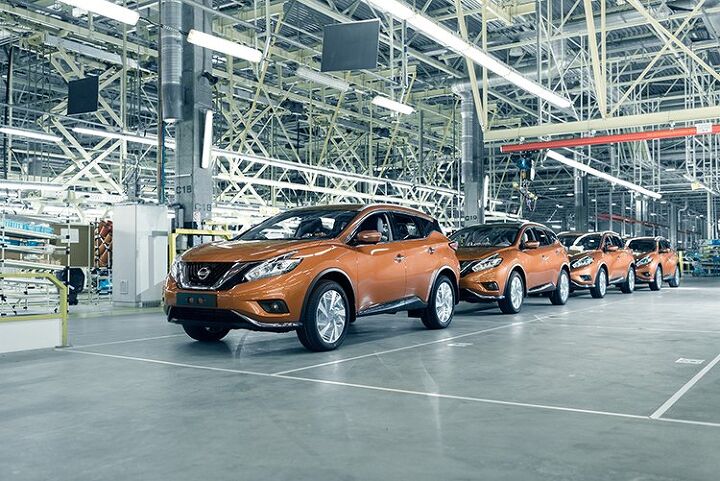



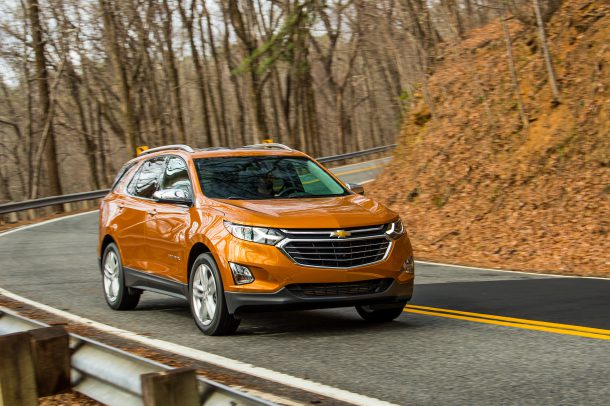



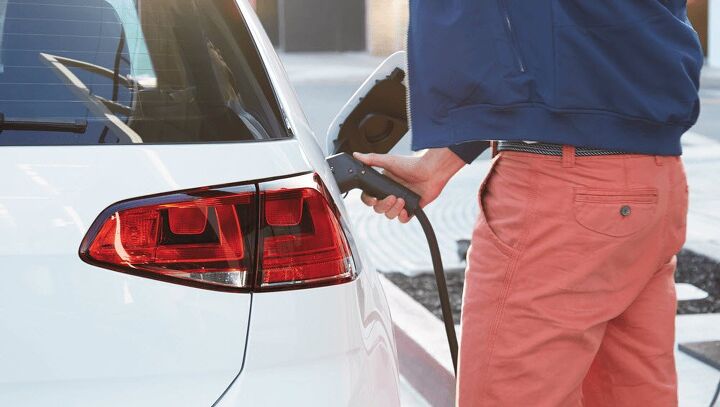

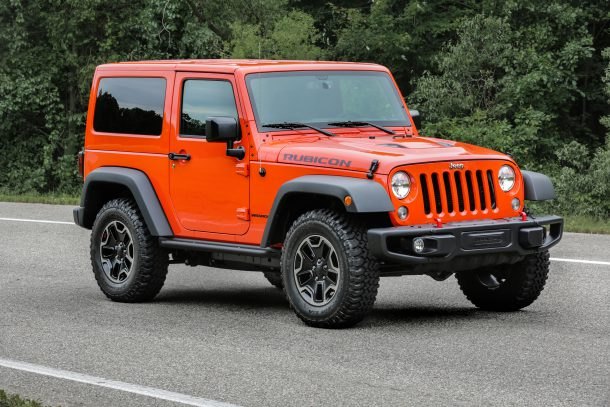
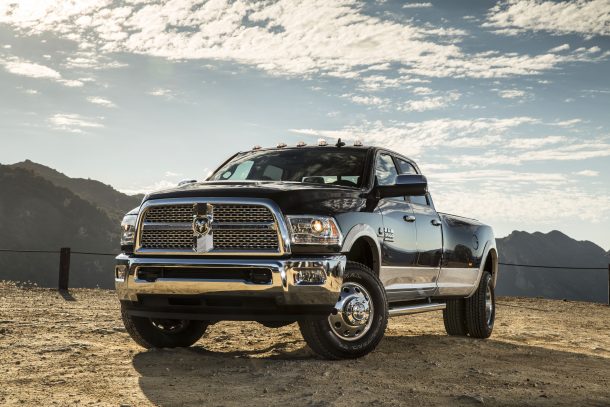

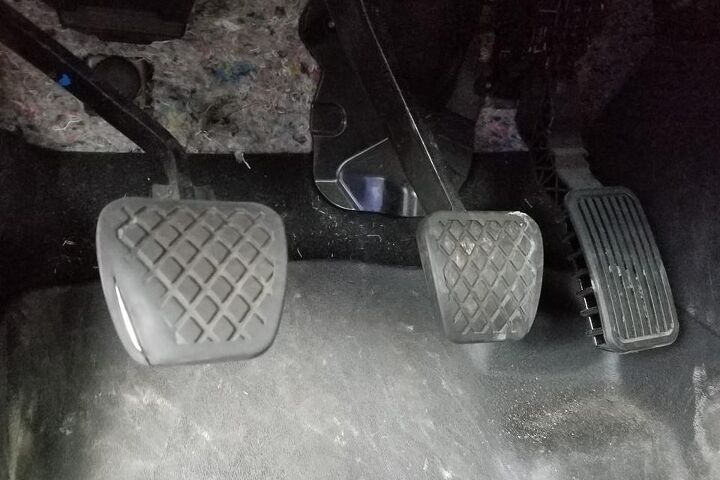












Recent Comments